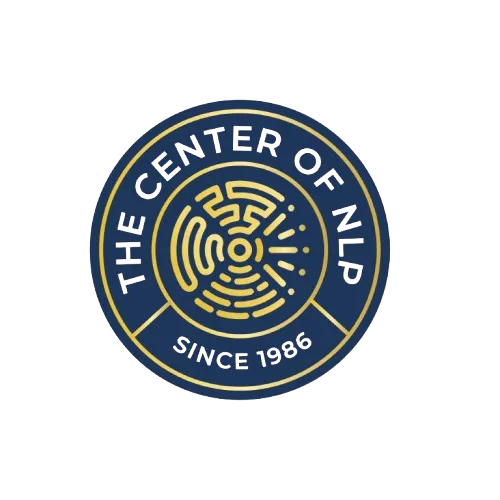
Neuro-Linguistic Programming (NLP) To Unlocking Your Full Potential
Neuro-Linguistic Programming (NLP) is a powerful approach to personal development and communication that has gained popularity in recent years. By understanding the connection between our thoughts, language, and behavior, NLP offers a range of techniques and strategies for achieving personal growth, enhancing communication skills, and achieving success in various areas of life. In this article, we will explore the fundamentals of NLP and delve into different techniques that can empower you to make positive changes in your life.
Craft Your Success Story with NLP Mastery!
Enroll in our dynamic neuro linguistic programming course for a journey into self-discovery, equipped with skills that guarantee personal and professional triumphs.
Understanding the Basics of NLP Techniques
1. Subconscious Mind and NLP
The subconscious mind plays a crucial role in shaping our thoughts, behaviors, and perceptions. NLP recognizes the power of the subconscious and provides techniques to reprogram it for positive change. By understanding how the subconscious mind works, we can identify and replace limiting beliefs and behaviors that hold us back from reaching our full potential.
2. Anchoring Techniques
Anchoring is a technique used in NLP to associate specific emotions or states with a particular trigger. By consciously creating and using anchors, such as touch, sound, or visual cues, we can access desired emotional states at will. Anchoring is particularly useful in managing emotions, boosting confidence, and overcoming anxiety.
3. Reframing Techniques
Reframing is a powerful NLP technique that involves changing the way we perceive and interpret events, situations, or challenges. By reframing our thoughts and beliefs, we can shift from a negative or limiting perspective to a more positive and empowering one. Reframing helps us find new solutions, overcome obstacles, and view challenges as opportunities for growth.
4. Rapport Building
Building rapport is essential in establishing effective communication and fostering positive relationships. NLP provides techniques for building rapport, such as matching and mirroring body language, tonality, and language patterns. By developing rapport, we can enhance our ability to connect with others, influence them positively, and build mutually beneficial relationships.
5. Language Patterns
Language plays a vital role in how we communicate and influence others. Neuro-Linguistic Programming (NLP) offers various language patterns and techniques that can help us become more persuasive, influential, and effective communicators. By using specific language patterns, such as embedded commands or presuppositions, we can subtly guide conversations and influence others' thoughts and behaviors.
LEARN MORE: https://www.centerofnlp.com/introtonlp
Applying NLP Techniques for Personal Development
1. Goal Setting and Achieving
NLP provides powerful tools for setting and achieving goals. By utilizing techniques like well-formed outcomes, chunking, and timeline visualization, we can clarify our goals, create effective action plans, and maintain motivation throughout the journey. NLP empowers us to overcome obstacles, develop resilience, and stay focused on our desired outcomes.
2. Overcoming Limiting Beliefs
Limiting beliefs can hinder personal growth and prevent us from reaching our full potential. NLP offers techniques, such as belief change patterns and the swish technique, to identify and transform limiting beliefs into empowering ones. By reprogramming our beliefs, we can cultivate a positive mindset and unleash our true capabilities.
3. Enhancing Self-Confidence
Self-confidence is crucial for personal and professional success. NLP techniques, including the circle of excellence and anchoring confidence states, can help boost self-confidence and develop a resilient self-image. By using these techniques, we can overcome self-doubt, enhance our self-esteem, and approach challenges with a positive mindset.
4. Managing Emotions and Stress
NLP equips us with techniques to manage and regulate our emotions effectively. By utilizing techniques like visual/kinesthetic dissociation, swish pattern, and anchoring positive emotional states, we can reduce stress, handle challenging situations with composure, and maintain emotional well-being.
NLP Techniques for Effective Communication
1. Active Listening
Active listening is a fundamental skill for effective communication. NLP emphasizes the importance of active listening, which involves being fully present, empathetic, and engaged in conversations. By practicing active listening, we can understand others better, build trust, and foster meaningful connections.
2. Building Rapport in Communication
Rapport is the foundation of successful communication. NLP techniques help us establish rapport by matching and mirroring the other person's physiology, tonality, and language patterns. By building rapport, we create a comfortable and harmonious communication environment, enhancing understanding and cooperation.
3. Persuasive Language Patterns
NLP provides language patterns that can be used to influence and persuade others positively. By utilizing techniques like embedded commands, presuppositions, and the Milton model, we can enhance our persuasive skills and communicate more effectively. These techniques can be particularly valuable in sales, negotiation, and leadership contexts.
4. Non-Verbal Communication
Non-verbal communication, including body language, gestures, and facial expressions, plays a significant role in conveying messages. NLP helps us become more aware of non-verbal cues and utilize them effectively to enhance our communication. By aligning our non-verbal signals with our verbal messages, we can create stronger connections and convey authenticity.
NLP Techniques for Business Success
1. Sales and Negotiation Skills
NLP techniques offer valuable insights and strategies for sales professionals and negotiators. By utilizing techniques like mirroring, pacing, and leading, we can build rapport, understand customer needs, and influence purchasing decisions. NLP enhances our ability to establish trust, handle objections, and create win-win outcomes in negotiations.
2. Leadership and Influencing Others
Leadership requires effective communication and the ability to influence others positively. NLP equips leaders with techniques for building rapport, inspiring others, and creating a compelling vision. By utilizing NLP techniques, leaders can enhance their communication skills, motivate their teams, and drive organizational success.
3. Building Successful Teams
NLP techniques can contribute to the development of high-performing teams. By understanding team dynamics, utilizing effective communication strategies, and fostering a positive team culture, NLP can help create cohesive and motivated teams. NLP techniques enhance collaboration, resolve conflicts, and facilitate productive teamwork.
NLP in Therapy and Coaching
1. Overcoming Phobias and Trauma
NLP has proven to be effective in addressing phobias and trauma. Techniques like the fast phobia cure and the rewind technique help individuals overcome their fears and traumatic experiences. NLP provides therapists and coaches with powerful tools to guide clients toward healing, emotional well-being, and personal transformation.
2. Life Coaching and Personal Transformation
NLP techniques are widely used in life coaching to empower individuals and facilitate personal transformation. Coaches utilize techniques like the SCORE model, the Disney strategy, and the circle of excellence to help clients gain clarity, set meaningful goals, overcome obstacles, and create positive change in their lives.
3. Improving Relationships
NLP techniques can enhance relationships by improving communication, resolving conflicts, and fostering understanding. Techniques like perceptual positions, meta-model questions, and reframing can facilitate effective communication, empathy, and mutual respect. NLP helps individuals create harmonious and fulfilling relationships in both personal and professional spheres.
Ethical Considerations in NLP
NLP practitioners and enthusiasts should be mindful of ethical considerations. Respecting boundaries, obtaining informed consent, and ensuring the well-being of clients or individuals involved are essential principles in practicing NLP. Ethical marketing of NLP services is also important to maintain transparency and trust within the community.
NLP The Powerful Framework
Neuro-Linguistic Programming (NLP) offers a wealth of techniques and strategies for personal development, effective communication, and success in various areas of life. By harnessing the power of our thoughts, language, and behavior, NLP empowers individuals to unlock their full potential. Whether you aim to enhance your personal life, excel in your career, or improve your relationships, NLP provides a toolkit to facilitate positive change and transformation.
FAQs
Q1. Can anyone learn and benefit from NLP?
A1.. Yes, anyone can learn and benefit from NLP techniques. NLP is a versatile approach that can be applied in various contexts, including personal development, communication, and business success. With practice and dedication, individuals can harness the power of NLP to achieve their goals and improve their lives.
Q2. How long does it take to see results with NLP?
A2. The time it takes to see results with NLP varies from person to person. It depends on factors such as the complexity of the desired change, individual commitment, and consistent practice. Some individuals may experience noticeable improvements quickly, while others may require more time and effort.
Q3. Can NLP replace therapy or professional help?
A3.. NLP techniques can complement therapy and coaching processes but should not be considered a substitute for professional help when needed. If you are experiencing significant mental health issues or trauma, it is important to seek the assistance of qualified professionals who can provide appropriate support and guidance.
Q4. Where can I learn more about NLP?
4.. There are various resources available to learn more about NLP, including books, online courses, and workshops. It is recommended to choose reputable sources and seek guidance from certified NLP practitioners or trainers for comprehensive learning and application of NLP techniques.
Check Out For more:

